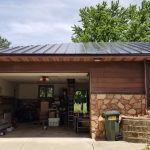By Joe Romm for ThinkProgress
Once upon a time, people imagined that replacing fossil fuels with renewables like solar and wind would jeopardize the electric grid’s reliability. Then along came some major countries who showed that it didn’t, and that there really are no limits to renewable integration.
The result was explained last year in a Bloomberg Business piece aptly headlined, “Germany Proves Life With Less Fossil Fuel Getting Easier”: “Germany experiences just 15 minutes a year of outages, compared with 68 minutes in France and more than four hours in Poland.”
Germany is the most powerful economy on the planet to depend so much on renewable electricity — renewables currently deliver 28 percent of Germany’s total grid power (and up to 40 percent in some regions). The United States has a very long way to go to hit that level, by which time there will be an even wider range of cost-effective strategies to deal with much higher levels of renewables.
Part One of this series explained why the International Energy Agency now projects that, for the planet as a whole, “Driven by continued policy support, renewables account for half of additional global generation, overtaking coal around 2030 to become the largest power source.” Part Two explained why renewables are going to grow so quickly in this country over the next couple of decades, especially wind and solar power, at the expense of both coal and natural gas.
In this post I’ll discuss why it is turning out to be less challenging than expected to incorporate more and more renewables into the electric grid — and to handle periods of time when demand is high but the wind isn’t blowing and/or the sun isn’t shining. As the lead energy specialist at the World Bank, Morgan Bazilian, told Bloomberg after 20 years studying this issue, “Very high levels of variable renewable energy can be accommodated both technically and at low cost.”





